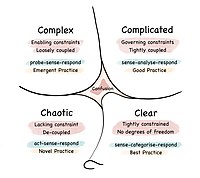
Photo from wikipedia
Abstract Currently there is a growing need for a versatile framework consisting of analytical and surrogate models to ensure both accuracy and computational efficiency of collapse analysis under extreme actions.… Click to show full abstract
Abstract Currently there is a growing need for a versatile framework consisting of analytical and surrogate models to ensure both accuracy and computational efficiency of collapse analysis under extreme actions. However training metamodels for highly nonlinear structural responses requires large number of samples to achieve enough accuracy. In this research a method is developed to achieve computational efficiency by implementing the adaptively shifted integration-Gauss technique in conjunction with a core neural network metamodel. The analytical model is validated by experimental data and its accuracy is further evaluated by detailed finite-element analysis. The applicability and efficiency of the provided tool for highly nonlinear analyses are investigated using collapse assessment of a steel framed structure subjected to code-stipulated vehicle impact loads. Thorough probabilistic analyses are carried out including reliability assessment, fragility analysis, and two different sensitivity tests. The analysis results show the superiority and precision of this framework compared to detailed finite-element analysis.
Journal Title: Engineering Structures
Year Published: 2018
Link to full text (if available)
Share on Social Media: Sign Up to like & get
recommendations!